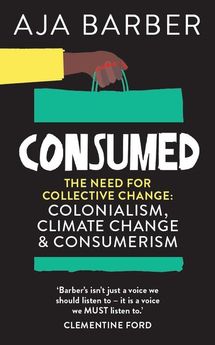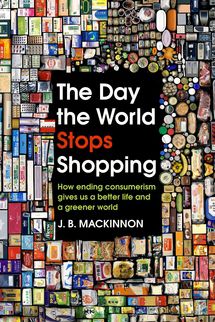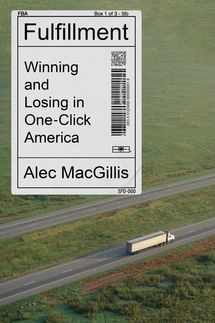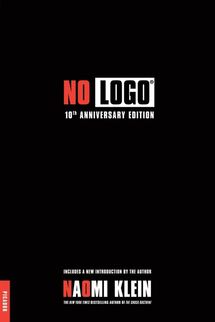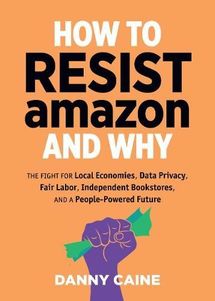Too many things in your cart or on your wish-list? These books can help you think more critically about what you’re buying, where you’re buying it from, and why we – as a society – feel so compelled to consume in the first place.
Consumed by Aja Barber
In the ‘learning’ first half of the book, Barber will expose you to the endemic injustices in our consumer industries and the uncomfortable history of the textile industry; one which brokered slavery, racism and today’s wealth inequality. In the second ‘unlearning’ half of the book, she will help you to understand the uncomfortable truth behind why you consume the way you do.
She asks you to confront the sense of lack you have, the feeling that you are never quite enough and the reasons why you fill the aching void with consumption rather than compassion. And she makes you challenge this power disparity, and take back ownership of it.
The Day the World Stops Shopping by J. B. MacKinnon
We are using up the planet at almost double the rate it can regenerate. To support our economies, we’re told we must shop now like we’ve never shopped before. And whilst we can do it more responsibly, the scale of our consumption remains the biggest factor in the ruination of the planet. Yet our reliance on stuff continues to grow. But what would our world look like if we stopped? Our private choices are putting the world in peril.
The Day the World Stops Shopping is an essential exploration of who we are and what we use, and a vision of a more sustainable world.
Fulfillment by Alec MacGillis
We have, it seems, entered the age of one-click America - and as the coronavirus makes Americans more dependent on online shopping, its sway will only intensify. Alec MacGillis’s Fulfillment is not another inside account or exposé of our most conspicuously dominant company. Rather, it is a literary investigation of the America that falls within that company’s growing shadow. With empathy and breadth, MacGillis demonstrates the hidden human costs of the other inequality – not the growing gap between rich and poor, but the gap between the country’s winning and losing regions. The result is an intimate account of contemporary capitalism.
No Logo by Naomi Klein
No Logo was a book that defined a generation when it was first published in 1999.
By the time you’re twenty-one, you’ll have seen or heard a million advertisements. But you won’t be happier for it. This is a book about that much-maligned, much-misunderstood generation coming up behind the slackers, who are being intelligent and active about the world in which they find themselves. It is a world in which all that is ‘alternative’ is sold, where any innovation or subversion is immediately adopted by un-radical, faceless corporations. But, gradually, tentatively, a new generation is beginning to fight consumerism with its own best weapons.
How to Resist Amazon and Why by Danny Caine
When a company’s workers are literally dying on the job, and its business model relies on preying on local businesses and even their own companies, and its CEO is the richest person in the world while its workers make minimum wage with impossible quotas…wouldn’t you want to resist?
Danny Caine, owner of Raven Book Store in Lawrence, Kansas, compiled this zine about his commitment to fighting Amazon.


